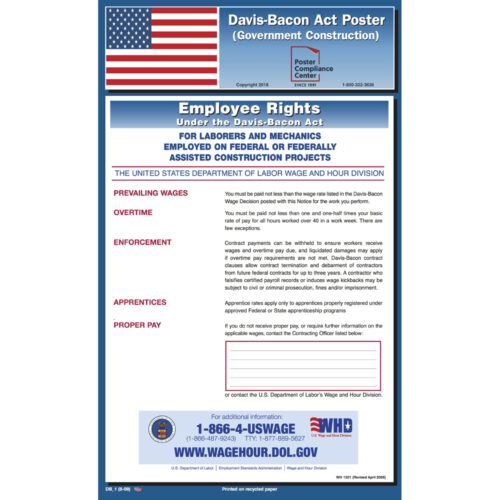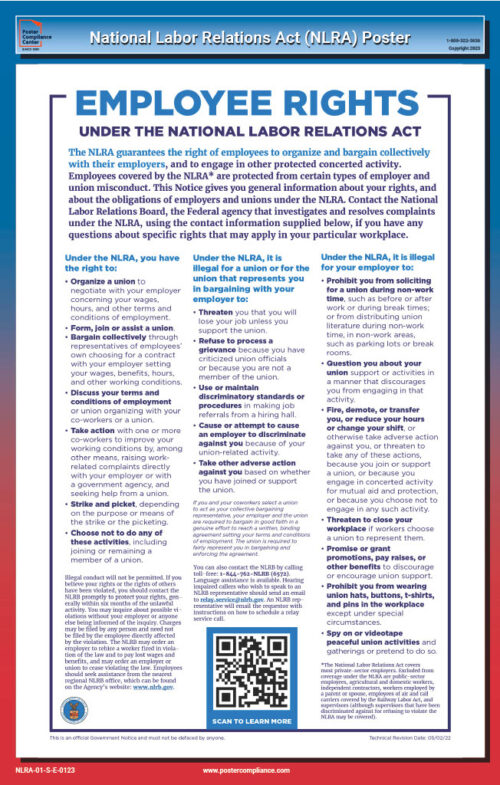History of the NLRA
The National Labor Relations Board (NLRA) was established by Congress in 1935 to protect the rights of employees and employers in the United States. Its aim was to promote collective bargaining and to reduce harm to workers in the private sector.
The goal of NLRB was to provide knowledge of rights to a specific group of workers. It ensures that workers who are employed by private companies who hold federal government contracts understand their power to join or form a union for the goal of collective bargaining with their employer. The U.S. government hoped that, by better-informing employees of federal contractors of their rights, costs to the federal government would be reduced by encouraging stable labor-management relations.
Executive Order No. 13496 was established on January 30, 2009, and signed by President Obama. This order further supported the goal of the National Labor Relations Act by mandating that the NLRB poster be displayed in all offices where the act was relevant.






